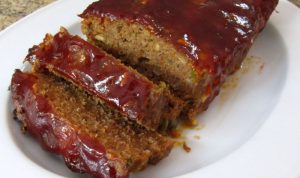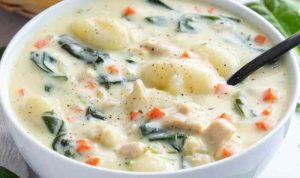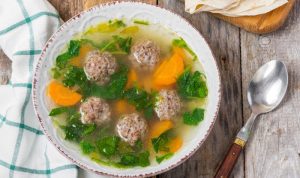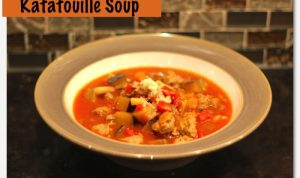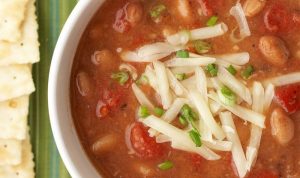Bone Broth Soup: A Culinary and Nutritional Deep Dive
Recipe for bone broth soup – Bone broth soup, a nourishing and flavorful culinary staple across various cultures, offers a rich history and a wealth of health benefits. This article explores its origins, nutritional profile, diverse variations, and practical cooking techniques.
Bone broth soup, rich in collagen and nutrients, offers a hearty and comforting meal. For a different, yet equally nourishing option, consider a creamy and flavorful alternative like the roasted butternut soup recipe , which provides a delicious vegetarian counterpart. Returning to bone broth, its versatility allows for countless additions and customizations to suit your preferences.
Introduction to Bone Broth Soup, Recipe for bone broth soup
Bone broth soup is a culinary preparation made by simmering animal bones in water for an extended period. This process extracts collagen, gelatin, minerals, and other nutrients from the bones, resulting in a flavorful and nutritious broth. Its history is deeply intertwined with various cultures, dating back centuries. Traditional practices in many parts of the world involved utilizing leftover bones to create nourishing and economical meals, emphasizing resourcefulness and sustainability.
In some cultures, bone broth held significant medicinal value, believed to aid in healing and recovery. The nutritional benefits are considerable, contributing to joint health, gut health, and overall well-being.
Essential Ingredients and Variations
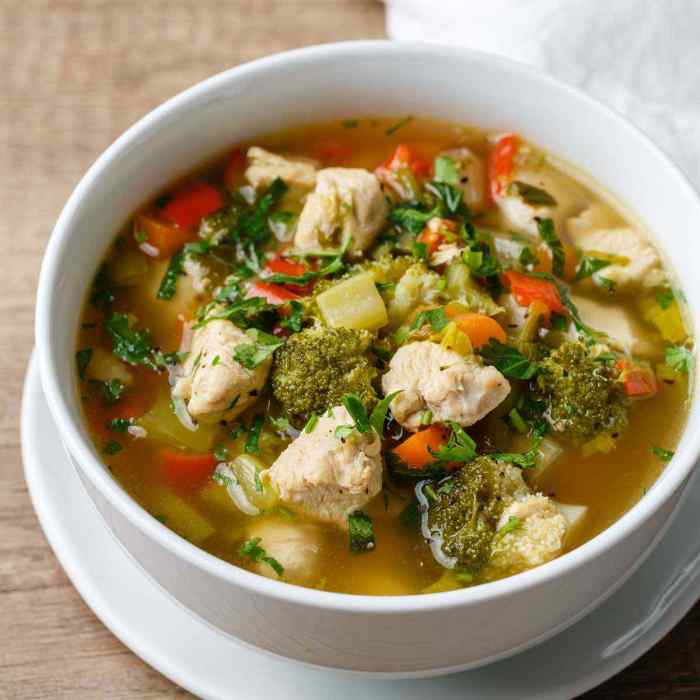
Source: ketopots.com
A basic bone broth recipe typically includes bones (beef, chicken, or pork), water, and a few aromatics like onions, carrots, and celery. These ingredients provide the foundation for a flavorful and nutritious broth. Different bone types yield unique flavor profiles. Beef bones create a rich and savory broth, chicken bones offer a lighter and more delicate flavor, while pork bones result in a slightly sweeter and more subtly flavored broth.
| Ingredient | Quantity | Substitute | Notes |
|---|---|---|---|
| Bones (beef, chicken, or pork) | 2-3 lbs | N/A | Use a mix of marrow bones and knuckle bones for richer flavor |
| Water | Enough to cover bones | N/A | Filtered water is recommended |
| Onion | 1 large, roughly chopped | Leeks | Adds sweetness and depth of flavor |
| Carrots | 2 large, roughly chopped | Parsnips | Contributes to the broth’s sweetness and color |
| Celery | 2 stalks, roughly chopped | Fennel | Adds a subtle earthy flavor |
Here are three unique bone broth soup recipes:
- Spicy Bone Broth: This variation incorporates chili peppers, ginger, and garlic for a warming and spicy kick.
- Herbal Bone Broth: This recipe emphasizes fresh herbs like thyme, rosemary, and parsley for a fragrant and aromatic broth.
- Savory Bone Broth: This version focuses on umami flavors through the addition of mushrooms, soy sauce, and seaweed.
Step-by-Step Cooking Process
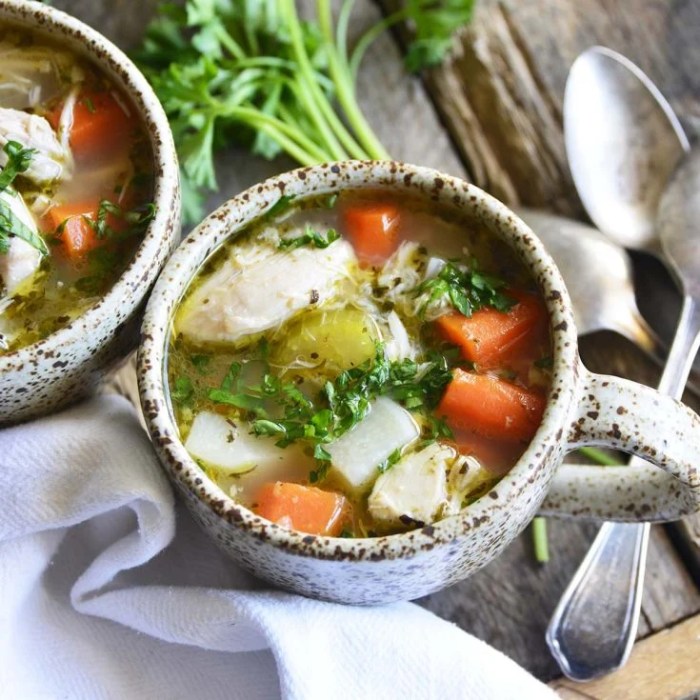
Source: theketoqueens.com
Preparing bone broth involves a slow and gentle simmering process to extract maximum flavor and nutrients. Simmering, rather than boiling, is crucial as it prevents the broth from becoming cloudy and bitter. The cooking time significantly impacts the broth’s richness and texture; longer simmering times yield a more gelatinous and flavorful broth.
- Combine bones, water, and aromatics (onions, carrots, celery) in a large stockpot.
- Bring the mixture to a boil over high heat.
- Reduce heat to low, cover, and simmer for at least 24 hours, or up to 48 hours for a richer broth. Skim off any foam that rises to the surface during the initial stages of cooking.
- Strain the broth through a fine-mesh sieve or cheesecloth, discarding the solids.
- Allow the broth to cool completely before storing.
Enhancing Flavor and Presentation
The flavor of bone broth can be enhanced through the addition of herbs, spices, and vegetables. Experimentation is key to finding your preferred flavor profile. Presentation is also important; a visually appealing soup is more inviting.
| Flavor Profile | Ingredients | Method of Addition | Effect on Broth |
|---|---|---|---|
| Earthy | Mushrooms, thyme | Added during the last hour of simmering | Adds depth and complexity |
| Spicy | Ginger, garlic, chili flakes | Added during the last 30 minutes of simmering | Adds warmth and heat |
| Savory | Soy sauce, seaweed | Added during the last 15 minutes of simmering | Enhances umami flavors |
To create a visually appealing presentation, consider garnishing with fresh herbs, a swirl of cream, or a sprinkle of spices. A photograph of the finished soup might showcase the rich color and texture of the broth, perhaps with a garnish of finely chopped parsley and a few slices of lemon. The steam rising from the bowl could also be visually depicted.
Serving Suggestions and Storage
Bone broth soup can be enjoyed as a main course, appetizer, or side dish. It can be served hot or cold. Leftovers can be stored in airtight containers in the refrigerator for up to 5 days or frozen for up to 3 months. Reheat gently on the stovetop or in the microwave. Bone broth can be incorporated into various recipes, such as soups, stews, sauces, and even added to smoothies for an extra nutritional boost.
Nutritional Information and Health Benefits
A typical serving of bone broth soup is low in calories and fat but rich in protein, collagen, gelatin, and various minerals. It is a good source of glycine, proline, and other amino acids. The collagen and gelatin content may support joint health, gut health, and skin health. Bone broth’s nutritional value compares favorably to other clear soups, often surpassing them in terms of protein and mineral content.
Adjustments for dietary restrictions can be made by using alternative ingredients, like vegetable broth for a vegetarian version, or omitting salt for a low-sodium option.
FAQ Corner: Recipe For Bone Broth Soup
Can I use frozen bones for bone broth?
Yes, frozen bones work well. Just ensure they are thawed completely before starting the cooking process.
How long can I store bone broth soup in the refrigerator?
Properly stored bone broth soup can last for up to 5 days in the refrigerator.
Can I make bone broth in a slow cooker?
Absolutely! Slow cookers are excellent for making bone broth, offering a gentle and long simmer.
What are the best vegetables to add to bone broth?
Carrots, celery, onions, and parsnips are classic choices, adding sweetness and depth of flavor.

